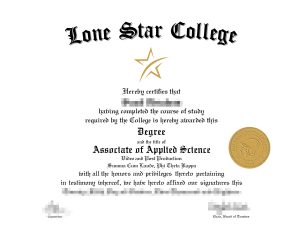
How to Buy a College Degree: A Comprehensive Guide (2024)
In today’s competitive job market, many individuals find themselves considering alternative paths to obtaining a college degree. While traditional education remains a staple for many, some may wonder if it’s possible to buy a college degree online. In this guide, we explore the legal aspects, risks, and how individuals sometimes pursue degrees through non-traditional means.
What Does It Mean to Buy a College Degree?
Buying a college degree typically refers to obtaining a degree without completing the necessary coursework, exams, or academic requirements. This process is often associated with purchasing a fake or fraudulent degree from unaccredited sources. While some individuals might consider this an easy shortcut to career advancement, it is crucial to understand the consequences involved.
Is It Legal to Buy a College Degree?
In most countries, purchasing a fake or unearned college degree is illegal and can lead to severe consequences, including fines, legal action, and damage to your professional reputation. Using a fake degree to apply for jobs, especially in regulated industries like medicine, law, and education, is considered fraud and can result in significant legal penalties.
The Risks of Buying a College Degree
Legal Consequences
Purchasing a fraudulent degree is illegal in many countries. If caught, you may face serious legal repercussions, including criminal charges.
Reputation Damage
If your employer or clients discover you have a fake degree, your reputation could be permanently damaged. You may lose your job, clients, and career prospects.
Limited Career Advancement
While you might initially secure a position with a fake degree, your lack of real education will eventually catch up with you. The higher you climb in your career, the more likely your qualifications will be scrutinized.
Job Ineligibility
Many jobs, especially those in regulated industries, require verifiable degrees from accredited institutions. A fake degree will not be accepted, and you may be disqualified from applying for such positions.

Alternatives to Buying a College Degree
If you’re seeking ways to boost your career without going through the traditional 4-year college route, there are legitimate alternatives:
Online Degree Programs
Many accredited institutions offer flexible online degree programs that allow you to earn a degree while balancing work and personal commitments.
Certification Programs
Depending on your career goals, obtaining professional certifications in your field may be a quicker and more affordable alternative to a full degree.
University Transfer Programs
Some universities allow students to transfer credits from other institutions, shortening the time required to earn a degree.
Skill Development
In today’s job market, practical skills and experience are often more valuable than a degree. Consider pursuing internships, apprenticeships, or self-learning courses to build your skills.
How to Protect Yourself from Fake Degree Scams
If you’re considering purchasing a degree, it’s essential to protect yourself from fraud. Here are some tips to avoid scams:
Research Accreditation: Make sure any institution you consider is accredited by recognized authorities. Fake degrees often come from institutions that are not accredited.
Check for Red Flags: If an offer sounds too good to be true, it probably is. Be wary of institutions that promise a degree with little effort or cost.
Consult Legal Counsel: If you’re unsure about the legitimacy of a degree offer, seek advice from a legal professional.
Conclusion
While the temptation to buy a college degree may seem appealing to some, the risks and consequences far outweigh any potential benefits. It’s important to pursue legitimate educational opportunities that will equip you with the skills and credentials necessary for success in your career. If you’re considering a degree, explore accredited institutions, online programs, and other career-boosting options that can lead to genuine success.
Remember: Education is not just about the piece of paper—it’s about the knowledge and skills you gain along the way.






